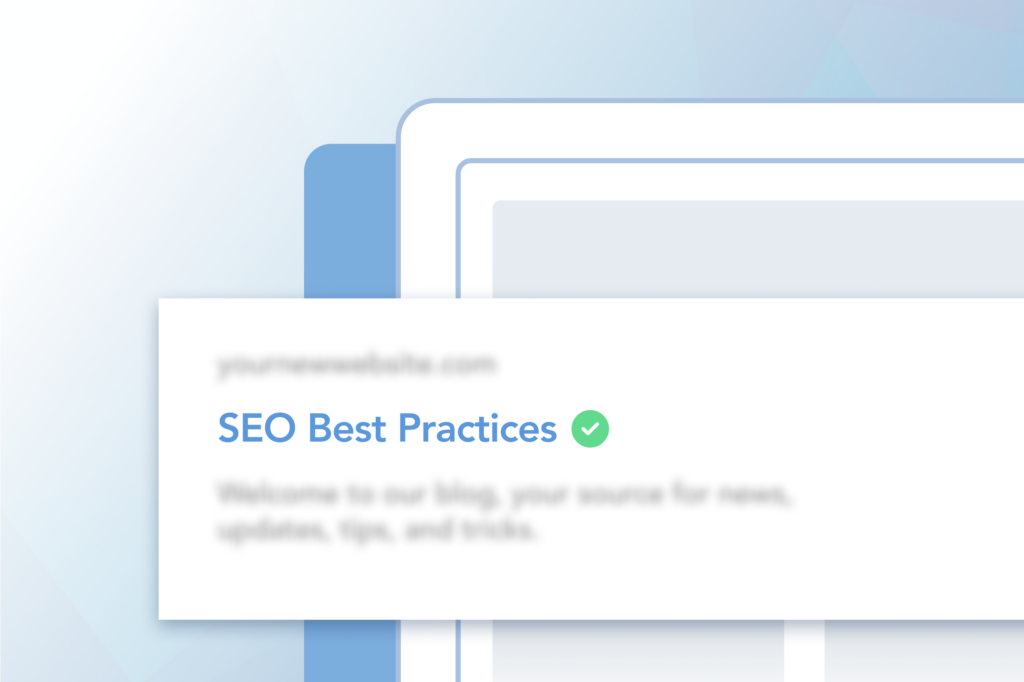
Occasionally seoplus+ clients have websites designed by third parties. In some cases, the third parties are not trained in SEO. To ensure the website does not suffer major drops in traffic/rankings, we have created this checklist for designers.
Not following these best practices could lead to a drop in rankings, traffic, and sales.

New Website SEO Checklist:
- Don’t delete key pages – If you are deleting any pages from the current website, check Google Analytics to ensure they are not highly visited pages.
- Migrate over original title tags and meta descriptions – Make sure you port over the titles and metas from the current website to the new website.
- Heavy plugins/apps – Don’t use graphics/video/plugins that will slow down the website – When considering adding video, graphics, etc. test to ensure they are not slowing down the website. Ideally pages load in 2-3 seconds.
- Don’t delete Google Analytics – When launching the new website, ensure Google Analytics is migrated over to the new website.
- Don’t change the domain – There are exceptions, but usually changing the domain name will have a negative impact on rankings.
- Don’t block search engines – Make sure any no follow/no index tags are used during development are removed. Also, ensure the robots.txt file isn’t blocking any search engines so pages can be crawled.
- Don’t get the dev site indexed – Make sure the development website does not get indexed by Google.
- Implement HTTPS – Whether or not the current website has an SSL, make sure the new one has an SSL. Also ensure that all pages on the website are HTTPs URLs. Never have two versions of the same page (HTTP & HTTPS). If this occurs, redirect the HTTP version to HTTPS.
- H-Tags – Make sure all pages have appropriate H-Tags (especially an H1 (avoid multiple H1s). Ideally, these should be migrated from the original site.
- Duplicate Content – Make sure the website has original content.
- Redirect URLS – If you’re changing any of the URLs on the site, ensure the old URL has been correctly redirected to the new page.These should be 301 redirects. Using other types of redirects could cause further issues.
- Poor Performing Theme – If you are using a theme to build the website on, please scan it using GTMetrix.com or a similar tool to ensure there are no underlying performance issues.
- Child Theme – If using WordPress, make sure there is a child theme so the website can be properly maintained/updated.
- Optimize Images – Resize images in Photoshop to ensure image sizes don’t slow down the website. Include appropriate alt tags on images.
- Don’t hardcode URLs – If you do need to do this, please ensure URLs are correctly switched to the new URL when the site goes live (Shouldn’t go live with the dev URL). So when adding URLs on the dev site follow this structure as it will be harder to do the SQL query for a web developer upon launch

- Schema Markup – Structured data should be migrated to the new site as is. Ensure this isn’t removed from the code or the site could lose SERP features.
- Site Speed – Ensure new website elements don’t make the site slower. Slow loading Images, unused javascript, unresponsive buttons, etc. can impact core web vitals.
- Sitemap – Ensure the sitemap is up to **** with all indexed pages. Don’t include pages that shouldn’t be indexed, old URLs, 301 redirects, etc.
- Internal Links – Ensure pages have links pointing to other relevant pages on the site. Anchor texts should be relevant and descriptive. The same anchor text should not be used for different pages. All of these links should be do-follow and not broken.
- Canonical Tags – Indexed pages should all have self-referencing canonical tags. Pages that shouldn’t be indexed but are live should have a canonical tag pointing to the relevant indexed page.
- Hreflang – Websites with multiple languages should have hreflang tags implemented. Ensure all non-English pages have proper country or language hreflang tags within the code.
- Mobile Site – Ensure the mobile version of the site is fully optimized and user-friendly. This is important for indexing and ranking.
- 400 Errors – Ensure there are no 400 errors on the site which could lead to indexing errors and poor user experience.
- Orphan Pages – Ensure all pages on the site have at least 1 link pointing to them. Pages with zero links directing to them will cause indexing and user experience issues.

How can seoplus+ help with SEO optimizations?
- Initial SEO Insights – We will provide some thoughts on key SEO factors to consider.
- Site Architecture – We can review the site architecture and provide SEO insight as needed.
- Wireframes – We can review the wireframes and provide SEO insight as needed.
- Mock-ups – We can provide SEO insight as needed on mock-ups.
- Front-end Development – We can review templates and provide SEO insights.
- Pre-launch Optimizations
- Post-launch Optimizations & QA
If you are involved in a web project and you are concerned about negative SEO implications, please contact us.



